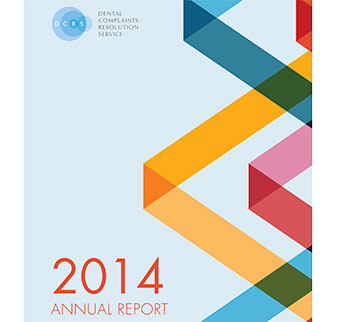Communication the key to resolving complaints
Annual review of complaints service offers advice for practitioners to reduce the amount of complaints
Read more…
Annual review of complaints service offers advice for practitioners to reduce the amount of complaints that are taken further.
The president of the Dental Council has expressed his concern that a quarter of communications complaints received by the regulator relate to dentists’ reactions to a patient concern being raised.
Writing in the annual report of the Dental Complaints Resolution Service (DCRS), Dr Eamon Croke said: “It is unsettling to note that 25 per cent of communication complaints relate to dentists’ behaviour after the patient brought a concern to their attention. All of these types of complaints are within the remit of all dental practices to address and resolve to mutual benefit.”
The DCRS was launched in 2012 as an alternative means to handling complaints, with the exceptions of treatments under the scope of the medical card or social insurance schemes. In 2014, the service received 384 telephone calls and 1,250 emails, leading to 158 cases that were taken on by the DCRS.
The service is free to members of the Irish Dental Association (IDA) and costs €95 per complaint for non-members. In an IDA survey of nearly 200 dentists, 91 per cent said they were aware of the DCRS but only 13 per cent said they were very or extremely familiar with the operation of the service, with 60 per cent indicating that they were not at all or slightly familiar.
However, 64 per cent of those who used the service were either very or completely satisfied with the handling of a complaint. Of those who availed of the DCRS, 32 per cent believed the settlement was unfair or very unfair, 32 per cent thought it about right and 36 per cent said it was fair or very fair.
Michael Kilcoyne, facilitator of the DCRS, said: “The most important advice that the Dental Complaints Resolution Service can offer to dentists is to listen closely to their patients. Even if the dentist believes they are not in the wrong, they should address their patient’s views. There will always be a certain amount of complaints when you are providing a service, and sometimes these can be resolved, or even avoided, simply by communicating.”

